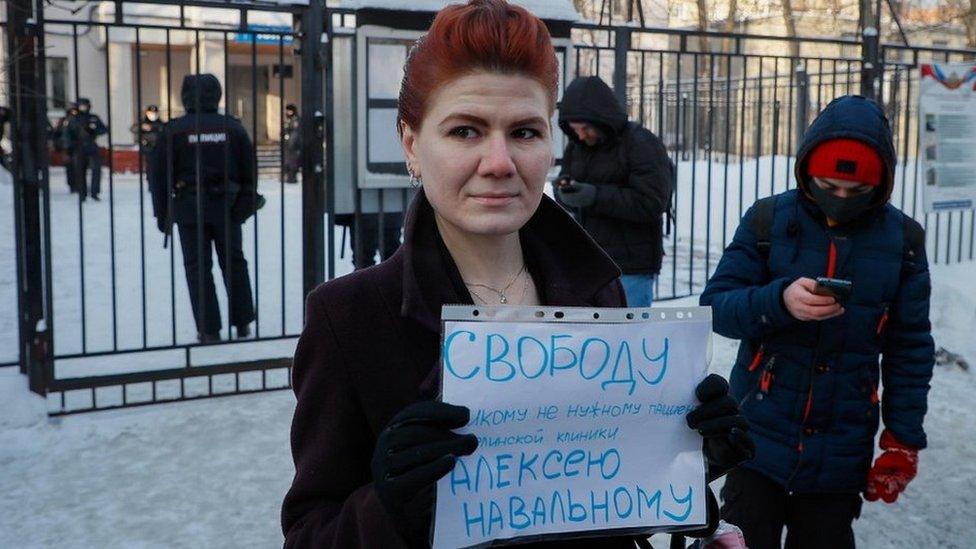Alexei Navalny: 'More than 3,000 detained' in protests across Russia
- Published
Supporters of Kremlin critic Alexei Navalny protest against his arrest across Russia
Russian police have detained more than 3,000 people in a crackdown on protests in support of jailed opposition leader Alexei Navalny, monitors say.
Tens of thousands of people defied a heavy police presence to join some of the largest rallies against President Vladimir Putin in years.
In Moscow, riot police were seen beating and dragging away protesters.
Mr Navalny, President Putin's most high-profile critic, called for protests after his arrest last Sunday.
He was detained after he flew back to Moscow from Berlin, where he had been recovering from a near-fatal nerve agent attack in Russia last August.
On his return, he was immediately taken into custody and found guilty of violating parole conditions. He says it is a trumped-up case designed to silence him.
OVD Info, an independent NGO that monitors rallies, said about 3,100 people had been detained, more than 1,200 of them in Moscow alone. The Kremlin has not commented.
Protester: 'I'm tired of being afraid'
The unauthorised demonstrations were held in about 100 cities and towns from Russia's Far East and Siberia to Moscow and St Petersburg. Protesters ranged from teenage students to elderly people who demanded Mr Navalny's release.
At least 40,000 people joined a rally in central Moscow, Reuters news agency estimated. But Russia's interior ministry put the number of protesters at 4,000.
Observers say the scale of the demonstrations across the country was unprecedented while the protest in the capital was the largest in almost a decade.
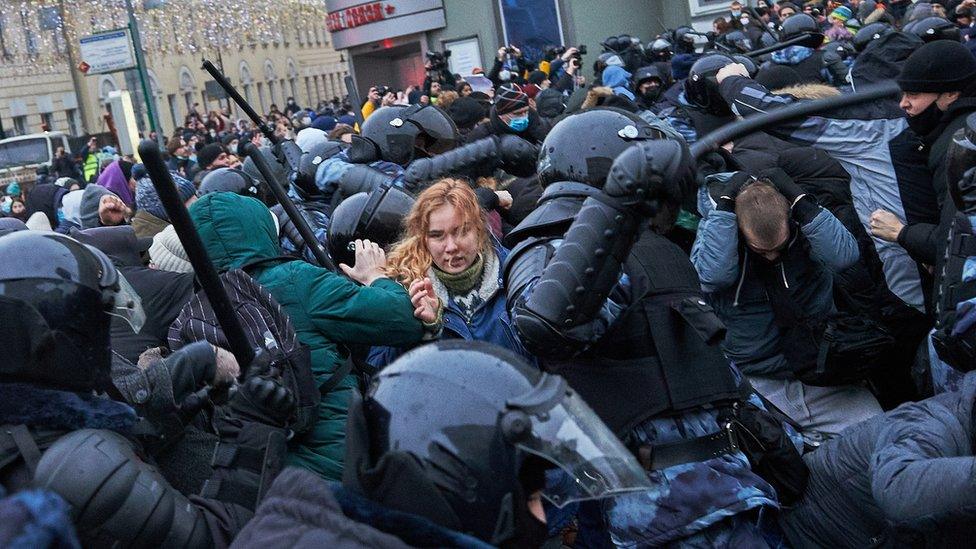
Riot police used batons against protesters in Moscow
In the city's Pushkin square, some protesters chanted "Freedom to Navalny" and "Putin go away!" One woman told the BBC she had decided to join the demonstration because "Russia has been turned into a prison camp".
Sergei Radchenko, a 53-year-old protester in Moscow, told Reuters: "I'm tired of being afraid. I haven't just turned up for myself and Navalny, but for my son because there is no future in this country."
Lyubov Sobol, a prominent aide of Mr Navalny who had already been fined for urging Russians to join the protests, tweeted a video of police roughly pulling her away from an interview with reporters.
Allow X content?
This article contains content provided by X. We ask for your permission before anything is loaded, as they may be using cookies and other technologies. You may want to read X’s cookie policy, external and privacy policy, external before accepting. To view this content choose ‘accept and continue’.

Mr Navalny's wife, Yulia, was briefly held at the rally. She posted an image on her Instagram account, external with the caption: "Apologies for the poor quality. Very bad light in the police van."
Some protesters marched on the high-security prison where Mr Navalny is being held, and many were arrested.
Meanwhile, one independent news source, Sota, said at least 3,000 people had joined a demonstration in the city of Vladivostok, but local authorities there put the figure at 500.
AFP footage showed riot police running into a crowd, and beating some of the protesters with batons.
Police used batons to break up protests in Vladivostok
In the Siberian city of Yakutsk, attendees at a small protest saw temperatures dip as low as -50C (-58F).
Prior to the rallies, Russian authorities had promised a tough crackdown. Several of Mr Navalny's close aides, including his spokeswoman Kira Yarmysh, were arrested earlier in the week.
His supporters called for more protests next weekend.

Alexei Navalny: The basics
Mr Navalny is an anti-corruption campaigner and the most prominent face of Russian opposition to President Vladimir Putin
He attempted to stand in the 2018 presidential race, but was barred because of an embezzlement conviction that he says was politically motivated
An outspoken blogger, he has millions of Russian followers on social media and managed to get some supporters elected to local councils in Siberia in 2020

Mobile phones and internet disrupted
There were reports of disruption to mobile phone and internet coverage on Saturday, though it is not known if this was related to the protests.
The social media app TikTok had been flooded with videos promoting the demonstrations and sharing viral messages about Mr Navalny.
In response, Russia's official media watchdog, Roskomnadzor, demanded that TikTok take down any information "encouraging minors to act illegally", threatening large fines. The education ministry had told parents not to allow their children to attend any demonstrations.
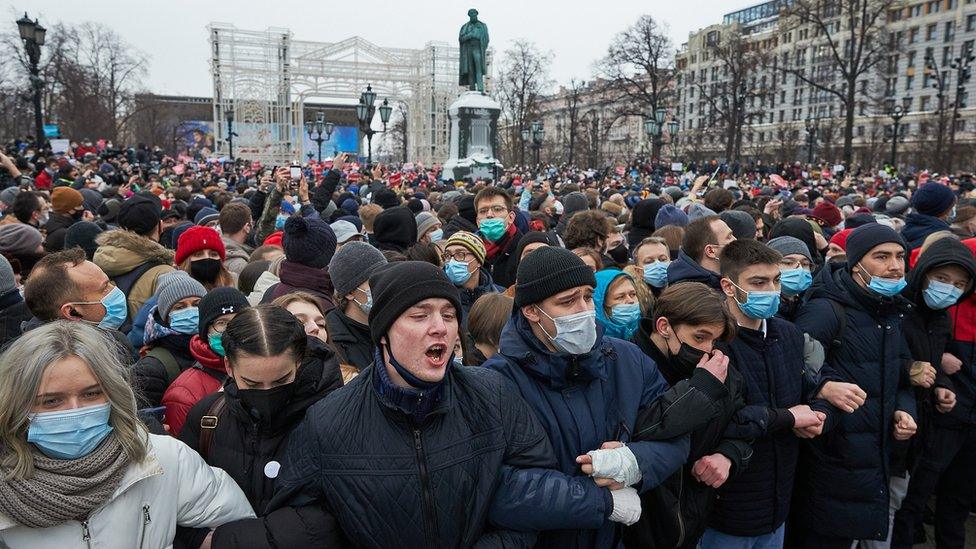
Protesters ignored extreme cold and threats of arrest in Moscow and other cities and towns
In a push to gain support ahead of the protests, Mr Navalny's team released a video about a luxury Black Sea resort that they allege belongs to President Putin - an accusation denied by the Kremlin. The video has been watched by more than 65 million people.
The UK Foreign Secretary Dominic Raab, condemned the "use of violence against peaceful protesters and journalists" on Saturday, external, calling on the authorities to release those detained during peaceful demonstrations.
The US state department condemned what it called "harsh tactics", external used against protesters and journalists, saying: "We call on Russian authorities to release all those detained for exercising their universal rights and for the immediate and unconditional release of Aleksey Navalny".
The EU foreign policy chief, Josep Borrell, said the bloc's foreign ministers would discuss the Russian crackdown on Monday. "I deplore widespread detentions, disproportionate use of force, cutting down internet and phone connections."
- Published23 January 2021
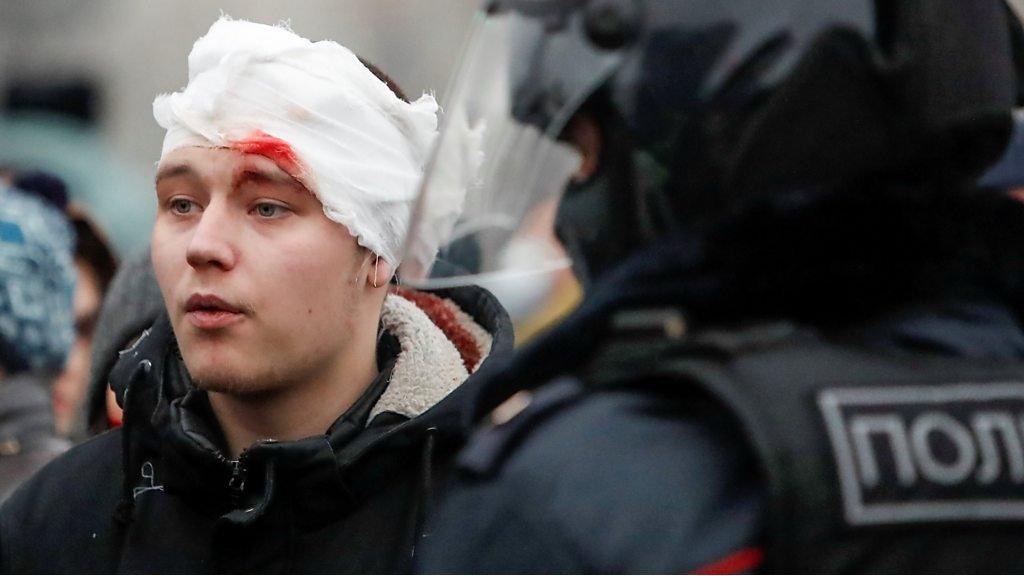
- Published23 January 2021
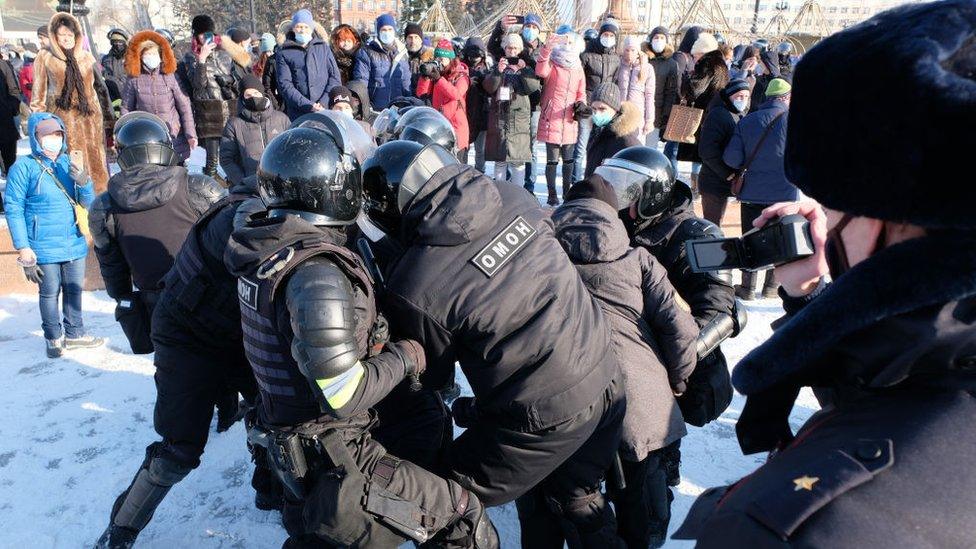
- Published20 January 2021
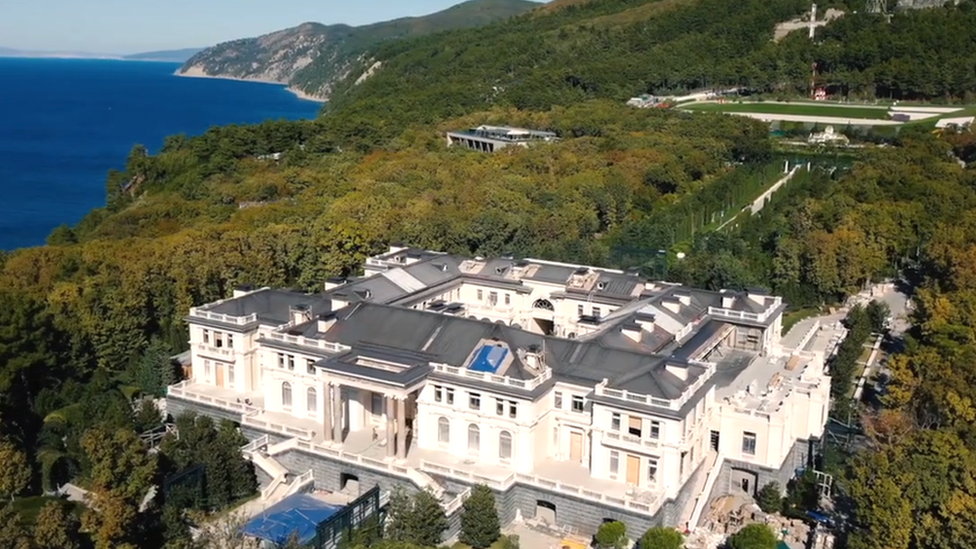
- Published16 February 2024
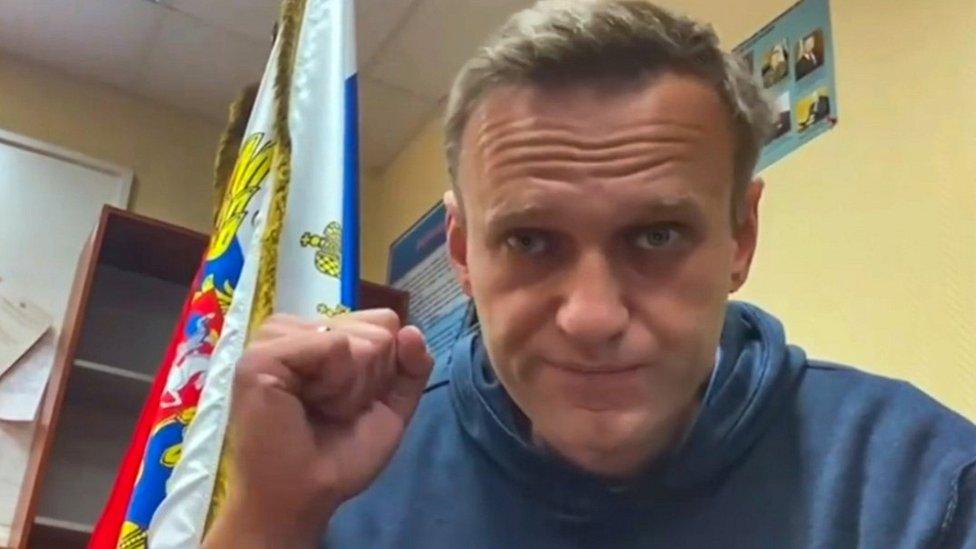
- Published21 January 2021
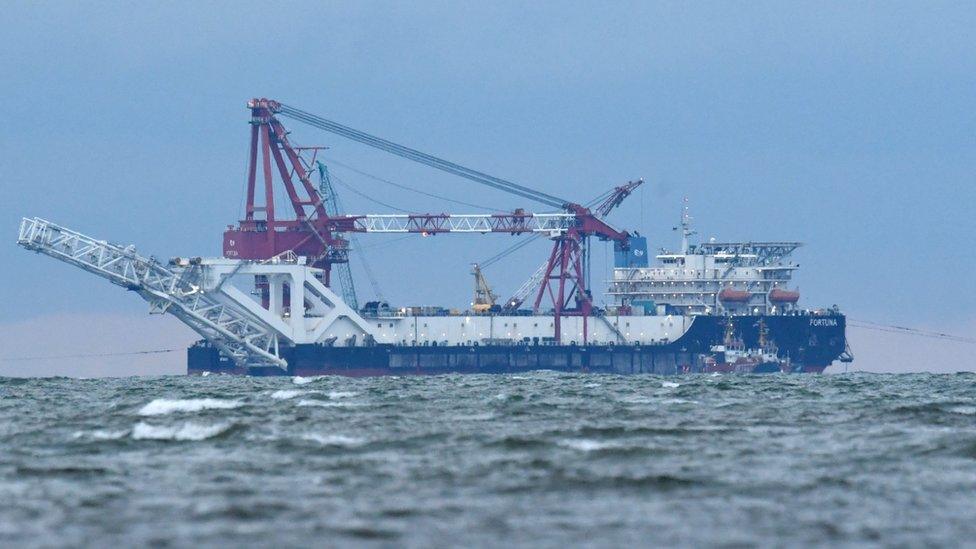
- Published4 September 2020
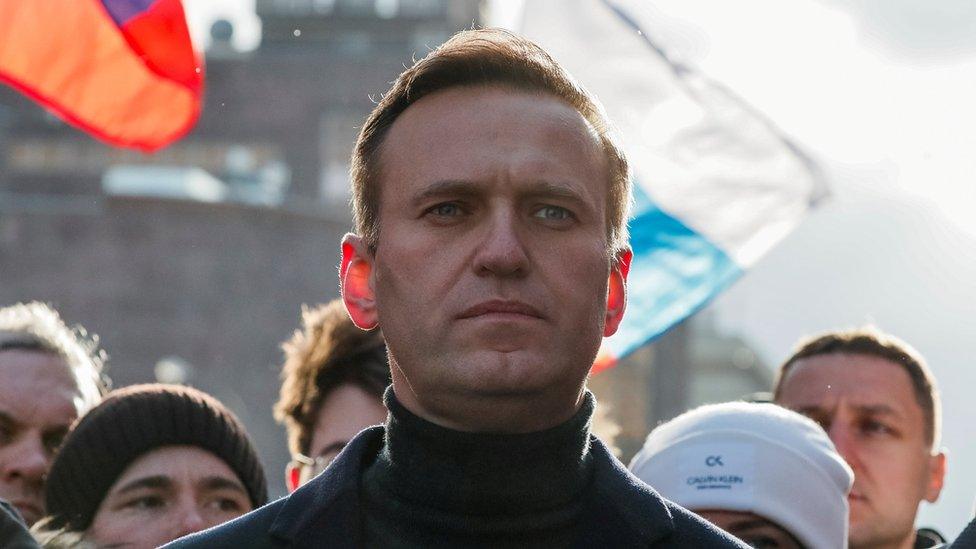
- Published18 January 2021
